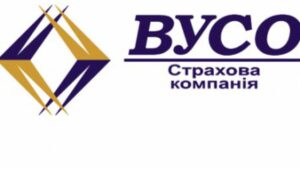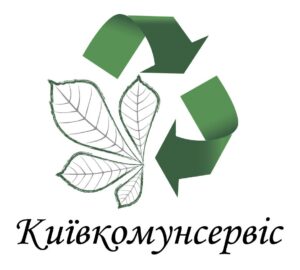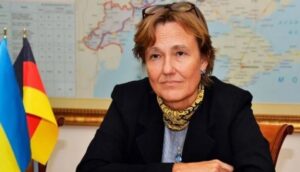
On January 6, Lviv municipal utility enterprise “Lvivvodokanal” announced its intention to conclude a contract of compulsory insurance of civil liability of owners of land vehicles (MTPL) with IC “VUSO” (Kiev).
As reported in the system of electronic procurement Prozorro, the company’s price offer amounted to UAH 1.161 million against UAH 1.796 million expected cost of purchasing services.
Insurance company Kraїna with a proposal of UAH 1.177 mln and SG TAS with UAH 1.4 mln also took part in the tender.

KP “Kyivkommunservice” on January 8 announced its intention to conclude a contract with IC ‘Kraїna’ for compulsory insurance of civil liability of owners of land vehicles (OSAGO), and with IC “Ultra Alliance” for voluntary insurance of civil liability (VLI), according to the system of electronic public procurement Prozorro.
The price offer of IC “Kraina”, the only participant of the tender, amounted to UAH 300.9 thousand at an expected cost of UAH 364.5 thousand.
The price offer of IC “Ultra Alliance” has amounted to UAH 31,980 th., at the expected cost of UAH 60,840 th.
The company was also the only participant of the tender.

Anka Feldhusen, German ambassador to Ukraine from July 2019 to July 2023, will take office as business ombudsman on February 1, 2026, replacing former Canadian ambassador to Ukraine Roman Waschuk, who was approved for the position by the Cabinet of Ministers of Ukraine on December 9, 2021, the Business Ombudsman Council announced on Facebook on Thursday.
The Cabinet of Ministers approved the decision of the Supervisory Board of the Business Ombudsman Council of November 25, 2025, to appoint Feldhusen by Order No. 9 of January 7, which is published on the government portal.
“I could not imagine a better successor than Anka Feldhusen. Her personal involvement in Ukraine since the mid-1990s, her comprehensive knowledge of government and business structures, and her empathy for the daily military (and other) challenges of Ukrainian life: I can only wish her and the renowned team of the Business Ombudsman Council continued success!” Vashchuk wrote on Facebook on Thursday.
The Business Ombudsman Council recalled that Feldhusen has considerable experience in diplomatic work in Ukraine, because before her appointment as ambassador in 2010-2015, she was deputy head of mission in Kyiv, and in 1994-1997 she headed the embassy’s press and protocol department.
In total, she has more than 30 years of experience working in the German Federal Foreign Office, and from 2016 to 2019, she served as head of department in the Administration of the German Federal President. From 2015 to 2016, she headed the regional department for East Africa, the Horn of Africa, and Sudan at the German Foreign Ministry. From 2002 to 2005, she was deputy head of mission in the Cuban capital, Havana.
Feldhusen speaks German (native), English, Ukrainian, French, Spanish, and Russian.
“It is a great honor for me to return to Ukraine as an advocate for the rights of entrepreneurs, whose resilience and determination support the country’s economy and defense capabilities in these difficult times. I believe that working to eliminate barriers and unfair practices on the part of state authorities is the basis for business development and attracting investors, despite the ongoing full-scale war,” the future business ombudsman commented on her appointment.
The Business Ombudsman Council (BOC) was established in accordance with the Memorandum of Understanding on the Ukrainian Anti-Corruption Initiative, signed in 2014 by the Ukrainian government, five business associations, the EBRD, and the OECD. Since 2015, the BOC has been operating as an independent permanent advisory and consultative body to the Cabinet of Ministers, with a team of more than 30 experts.
The council’s mission is to promote a transparent business environment by reviewing complaints from companies about violations or corruption by officials. The BOC, headed by the Business Ombudsman, acts as a neutral, extrajudicial mechanism and promotes constructive dialogue between business and government.
The BOC is funded by a Multilateral Donor Account managed by the European Bank for Reconstruction and Development (EBRD). Donors include Austria, Denmark, the EU, Finland, France, Germany, Italy, Japan, Latvia, the Netherlands, Norway, Poland, Sweden, Switzerland, the United Kingdom, and the United States.
Before Waschuk, the business ombudsman was former Warsaw Mayor Marcin Świecicki, appointed in 2019, and the first to hold this position in 2014 was Algirdas Šemeta, former Minister of Finance of Lithuania, European Commissioner for Budget and Financial Planning (2009-2010) and for taxation, customs union, audit, and anti-fraud (2010-2014).
As previously reported by Alexei Dolgikh, managing partner of Boyden Ukraine, a company specializing in the search for senior executives and selected by the EBRD to conduct the selection of a new business ombudsman, there were no Ukrainians among the candidates. “There were zero Ukrainian candidates for business ombudsman. They don’t believe in it,” Dolgikh said at the International Forum of Corporate Directors, held by the Professional Association of Corporate Governance (PACG) in early December 2025 in Kyiv.
Dolgikh told Interfax-Ukraine that three strong candidates had been selected, from which the Business Ombudsman Council made its final choice.
ANKA FELDHUSEN, Business Ombudsman, Former ambassador, GERMANY

A farewell ceremony for renowned journalist Denis Bezlyudko, who headed the Ukrainian News and RBC-Ukraine news agencies and recently passed away unexpectedly at the age of 50, will be held on Friday afternoon in Kyiv.
“The funeral service for Denis Bezlyudko will be held on Friday, January 9, at 3:00 p.m. at 16 Baikova Street, crematorium, white administrative building, VIP hall,” his wife Lesya Kazachynska wrote on her Facebook page.
Bezlyudko worked for 15 years at the Ukrainian News information agency and headed it for many years, then he was also the editor-in-chief of RBC-Ukraine, and in 2021, together with Oleksandr Kramarenko and Maksim Urakin, he headed the board of the Presszvanie journalism competition.
The editorial staff mourns his passing and expresses its deepest condolences to Denis’s family.

The share of electric vehicles in the new passenger car market in Ukraine in 2025 increased to 28.3% from 14.5% a year ago, while cars with traditional engines (gasoline and diesel) accounted for only half of the market compared to more than 65% in 2024, Ukravtoprom reported on its Telegram channel.
“Models with gasoline engines remained the most popular, but their market share decreased from 40% to 32.3% compared to 2024,” the association said.
In particular, the diesel car segment decreased from 25.6% to 17.4%, while the share of hybrids increased from 19.5% to 21.8%.
Cars equipped with gas cylinder equipment (LPG) again accounted for less than 1% of the new passenger car market.
According to Ukravtoprom, the Hyundai Tucson took the lead in the gasoline car segment, the Volkswagen ID.Unyx in electric cars, the Toyota RAV-4 in hybrids, the Renault Duster in diesel cars, and the Hyundai Tucson in cars with LPG equipment.
According to Ukravtoprom, in 2025, the market for new passenger cars in Ukraine grew by 17% to 81,300 units, including a 2.2-fold increase in December to 12,400 units.
These figures are due to the sharp growth in sales of electric vehicles in the last months of 2025, given the cancellation of VAT exemptions during their customs clearance from the beginning of 2026. In December, according to AUTO-Consulting, the share of electric vehicles exceeded 50% of sales.
According to market experts, after the announcement of the abolition of VAT exemptions, prices for electric vehicles began to rise, and by the beginning of 2026, prices for both used and new electric vehicles had effectively offset the 20% VAT.

On March 26, 2026, the INVESTMENT AND CONSTRUCTION CONGRESS (IBC) and the Real Estate Market Awards (REM AWARDS) ceremony, the main award of the Ukrainian real estate market, will take place at the Parkovy Exhibition Center in Kyiv.
The INVESTMENT AND CONSTRUCTION CONGRESS and Real Estate Market Awards are positioned as a key meeting point for capital, developers, investors, and leaders of Ukraine’s real estate market in 2026. The event will be held offline and online.
The business program of the Congress is scheduled from 9:00 a.m. to 6:00 p.m. in the main hall “Chasha” (3rd floor). The program includes panel discussions and professional battles, speeches by market leaders, investment analytics and case studies, partner presentations, as well as an exhibition area.

According to the organizers, the audience of the INVESTMENT AND CONSTRUCTION CONGRESS will consist of more than 6,000 participants, including developers, investors, architects, business owners, and top management.
The evening program will run from 6:00 p.m. to 9:00 p.m. and will include the Real Estate Market Awards 2026 ceremony, a performance by the Rizni Theater, a concert by Dmytro Prokopov, and a concert by the band Druga Rika. The hosts of the evening will be Anton Polishchuk and Nikita Dobrynin.
For more information and registration, visit the Congress website at www.ubc-ua.info
The Interfax-Ukraine news agency is the official information partner of the event.